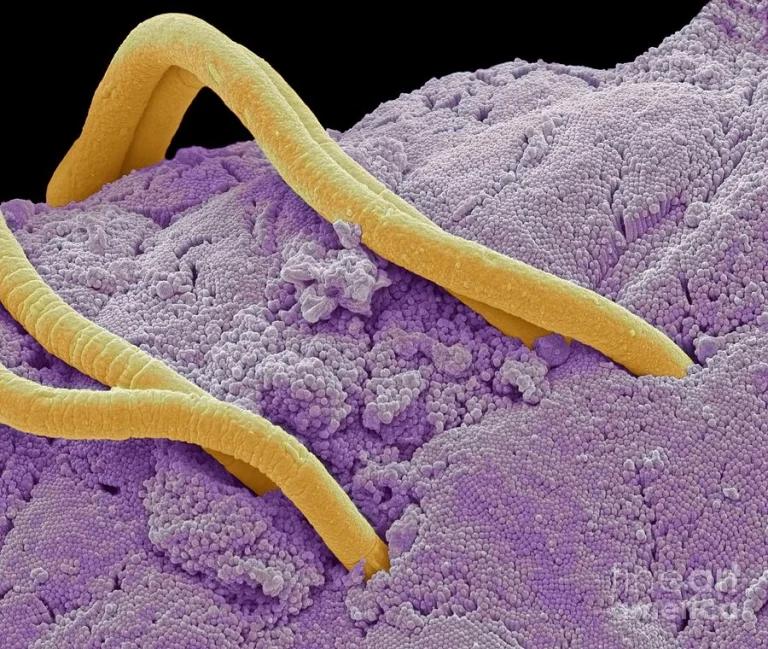Everyone has heard the horror stories of head lice infestations. It can be a nightmare for parents, but it doesn’t have to be. With an understanding of the signs and symptoms, preventative measures and treatment options, you can help keep your family healthy and free from head lice.
Head lice are small insects that live on human heads, these lice feed on blood from the scalp. The scientific name for head lice is Pediculus humanus capitis. They have six legs with claws that allow them to cling tightly to the hair shafts. While head lice can’t fly or jump, they can crawl quickly from one person’s hair onto another’s if close contact occurs. Head lice eggs (nits) are firmly attached to the base of the hair and may look like dandruff. Lice lay nits on hair shafts close to the scalp, where the temperature is perfect for keeping warm until they hatch.
How to identify head lice
Head lice can be difficult to see just by looking at your child’s hair because they’re extremely small, from the size of a pinhead to the size of a sesame seed and they move quickly. The best way to spot them is by looking through the hair with a magnifying glass or bright light source and parting the hair into sections, so you can see the nits (the head louse eggs) or live lice on the scalp or near the hairline, at the back of the neck and behind the ears. Live lice appear as brown or greyish specks that scurry away when disturbed. Nits are white or yellowish in colour and cling firmly to strands of hair close to the scalp.
Signs & symptoms of head lice
Head lice infestations are quite common and cause many symptoms including:
- Itchy scalp tenderness due to a sensitivity to louse saliva
- Redness along the scalp line
- Visible lice or nits in the scalp hair
- Red bumps on the back of the neck
- The feeling of something crawling around on your scalp
- Brownish spots or streaks on pillowcases and fabrics, which could be louse faeces
We recommend consulting with your healthcare provider, who will be able to confirm a diagnosis.
What causes head lice to begin?
Head lice typically begin when there is an infestation of eggs or nits, on the scalp or hair shaft. The eggs are typically laid close to the scalp and range from white/yellow to brown in colour. Once the eggs hatch, it only takes about 7-10 days for them to fully mature into biting adult lice.
Head lice spread by direct head-to-head contact between people’s heads. This means that if someone who is infected brushes their hair against another person’s head, they could transfer the lice due to close contact. Lice can also be transferred through shared items like hats, pillows, combs and other personal belongings.
What is the life cycle of head lice?
Understanding their life cycle is one way to help with prevention and control.
After hatching from an egg or “nit”, young lice, known as nymphs, go through three developmental stages: the egg, the nymph and the adult, before maturing into adult head lice, all within a 28-day period.
Within 8 days, a single fertile female is capable of laying up to 10 eggs per day. As it grows, the strength and fertility of the female gains over time, this number can rise up to 8 eggs in 24 hours by the completion of its life cycle. This rapid reproduction can cause a full-blown infestation in just two weeks if left untreated.
Taking all necessary preventative measures can help stop an infestation before it starts. Let’s take a look at these measures.
Who is at the most risk of head lice infestations?
Head lice infestations are a common problem among school-age children, the risk is significantly higher for children aged 3-11. The school nurse can be a great resource for help if your child has been diagnosed with head lice.
Families in large households and those living in close quarters are more likely to have outbreaks, as well as young people who participate in activities such as sports due to their increased physical contact with others.
Girls tend to be at higher risk than boys, possibly because of their long hair or greater willingness to share combs, hats and clothing. Ultimately anyone can get head lice if they come into contact with an infected individual or object like a towel or clothing item however, understanding which individuals are most at risk should help parents take necessary steps to protect their children.
Preventative measures
Head lice are a common pest that can affect individuals of any age. Fortunately, there are preventative measures that you can take to avoid becoming infested.
- Be sure to practice frequent head checks for lice both at home and voluntarily in school or daycare settings. If you spot lice or eggs (nits), inform the appropriate person so they can take further actions like alerting other families if necessary
- Keep in mind that direct contact with someone who is infected with lice is the primary mode of transmission. Therefore, avoid sharing personal items such as hats or combs, brushes, headphones or earbuds, and sleepover supplies like pillows and stuffed animals in order to reduce the risk of exposure
- If you have long hair, tie it back when around others who may have lice
- Wash bedding weekly in hot water and dry it using high heat settings to kill any potential louse eggs that may be present
Following simple preventive steps when dealing with head lice can help you stay lice-free.
Head lice treatment
When it comes to treating head lice, there are plenty of options available to kill head lice. Though it may seem overwhelming, the most important thing is to find the treatment that works best for your situation.
Medication
Over-the-counter medications can be effective in eliminating lice, but they may take multiple treatments. There are several different products that can be applied to the scalp and hair to kill head lice, including:
- Dimeticone 4% lotion or lotion spray – applied and left for 8 hours (usually overnight)
- Dimeticone 4% spray gel – applied and left for 15 minutes
- Mineral oil and dimeticone spray – applied and left for 15 minutes
- Isopropyl myristate and cyclomethicone solution – applied and left for 5-10 minutes
Your pharmacist can recommend suitable treatment and advise you on how to use treatments correctly. Some treatments are not recommended by the NHS because they’re unlikely to work.
For example:
- Products containing permethrin
- Head lice “repellents”
- Electric combs for head lice
- Home remedies such as tree and plant oil treatments,such as tea tree oil, eucalyptus oil and lavender oil herbal remedies
Wet combing
Wet combing for head lice treatment is a process that can be done at home and does not involve any chemicals. Dry combing takes less time, but wet combing is a more accurate and effective way of treating head lice.
The process of wet combing is fairly straightforward, beginning with washing the hair with ordinary shampoo before combing through it with a detection comb to locate any nits or lice on the scalp. Once they have been detected, all of the hair should then be combed again using a fine-tooth comb. This should be done multiple times on the whole head. Each time comb through different sections of hair, paying special attention to areas behind the ears and at the nape of the neck. All this needs to be done on wet hair, which makes it easier for the lice to slide out as combing proceeds. In between combing sessions, it may help to condition and detangle strands using an appropriate product.
Seek professional advice
With any medical concern, it is always best to consult with a professional before beginning any type of treatment. Your pharmacist is a great source of help and information when it comes to head lice and how to treat them. They can offer recommendations and advice on the best course of action for you and your family. Be sure to ask about any over-the-counter treatments they may recommend and if there are any possible side effects associated with them. Remember, your health is always the top priority. If you have any concerns or questions, please do not hesitate to reach out to speak with one of our pharmacists today.
FAQ’s
My child has head lice. Should I keep them off school?
While it’s not necessary to take your child out of school if they have head lice, taking immediate action is important for treatment. Communicating with the families of their close contacts can also help prevent further spreading among kids in school. It’s quite probable that a few weeks may have already passed since the initial onset, so unfortunately isolation from others won’t necessarily stop transmission.
What is the difference between head lice and pubic lice?
Head lice and pubic lice are distinct species of parasitic insects, both belonging to the Phthiraptera order. Both types of lice feed on human blood and can cause intense itching, but there are some significant differences between them which it’s important to be aware of.
Head lice typically live on the scalp and do not generally move to other parts of the body. Pubic lice have adapted to a different environment, living in the pubic region and occasionally moving onto other areas such as armpits, facial hair, eyebrows and eyelashes.
Another difference is that head lice have evolved specially shaped claws that help their grip on human hair, meaning they cannot move to any other part of the body without assistance. By contrast, pubic lice can easily move from one area of skin to another. Pubic lice are typically bigger in size and darker in colour than head lice.
As well as different habitats, these two types of parasites require different treatments for elimination; therefore, it’s essential to understand which species has infested you in order to make an informed decision about how best to deal with it.
Sources
Medical Disclaimer
NowPatient has taken all reasonable steps to ensure that all material is factually accurate, complete, and current. However, the knowledge and experience of a qualified healthcare professional should always be sought after instead of using the information on this page. Before taking any drug, you should always speak to your doctor or another qualified healthcare provider.
The information provided here about medications is subject to change and is not meant to include all uses, precautions, warnings, directions, drug interactions, allergic reactions, or negative effects. The absence of warnings or other information for a particular medication does not imply that the medication or medication combination is appropriate for all patients or for all possible purposes.







